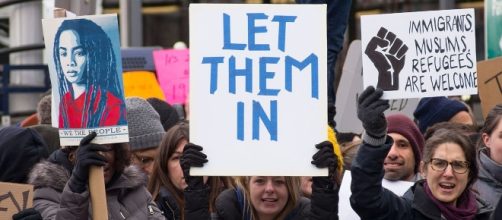The Donald trump administration failed again as the Supreme Court canceled the arguments on new restrictions on the travel ban, which was expanded to eight countries. The arguments for the new travel ban were set for October 10th.
On Sunday, Sept. 24th, The Trump administration announced the new restrictions of its travel ban on visitors from eight countries, which include citizens from North Korea, Venezuela, and Chad. The new expansion has sparked another legal debate over the security of immigration and discrimination.
‘Make America Great Again’
The measures aim to fulfill Donald Trump's promise last election, which is to make it harder to migrate into the U.S. as part of his campaign, "Make America Great Again." While announcing the new restrictions and the date when will it take effect, officials said the rules are "meant to be both tough and targeted." Shortly after, U.S. President Donald Trump took to Twitter to announce the new travel ban restrictions.
"Making America Safe is my number one priority. We will not admit those into our country we cannot safely vet," Trump tweeted after the release of the proclamation of the new restrictions.
Trump Administration expands travel ban to Venezuela, North Korea, Chad
Surprisingly, the Trump Administration expanded the ban to North Korea, Chad, and Venezuela. In the new policy, the citizens from the aforementioned countries, both immigrants and non-immigrants, are not allowed to enter the United States on business, tourist, or even business-tourist visas.
It's a similar situation for Iranian citizens, except for the students, who underwent extra screening, the Washington Post reported. The proclamation also discourages immigrants and non-immigrants from North Korea, Somalia, and Syria from entering the country.
The original version of the travel ban, signed as an executive order by Donald Trump during his first days, was meant to be a temporary measure while his team was working to make permanent rules.
Trump's critics disagreed with the travel ban's new restrictions.
According to a senior administration official, the new restrictions are not meant to last forever, however, these are “necessary and conditions-based, not time-based.’’ The critics accused Trump of discriminating against Muslims. They said the new set of restrictions violates a constitution that guarantees religious liberty and equal protection under the law, thus it breaks the existing US immigration law and triggers religious hatred.
The ban was enacted in March 2017. It was supposed to expire on Sunday evening. The new restrictions will take effect on October 18, and it will cause international outrage and legal challenges, according to Independent UK.


